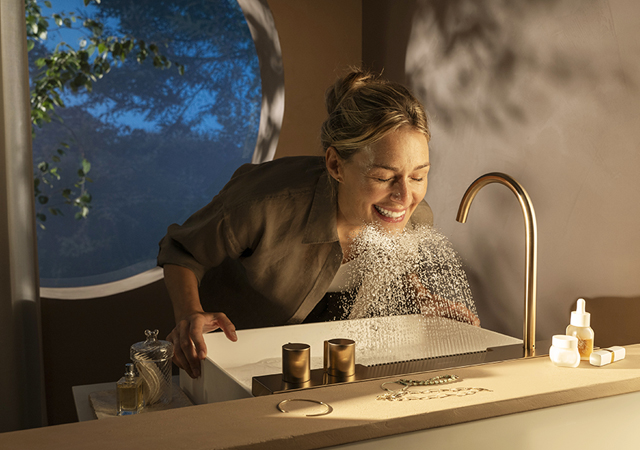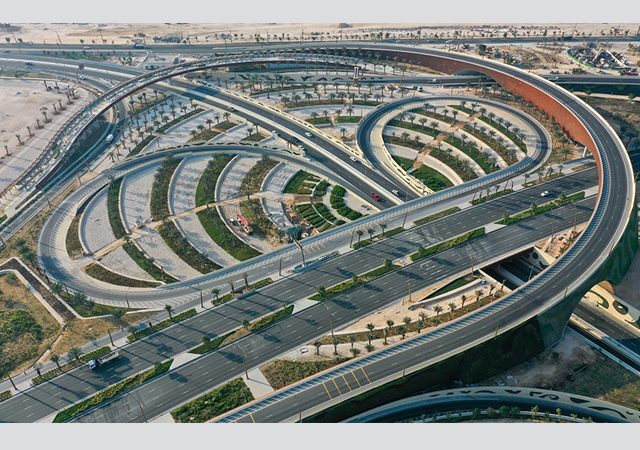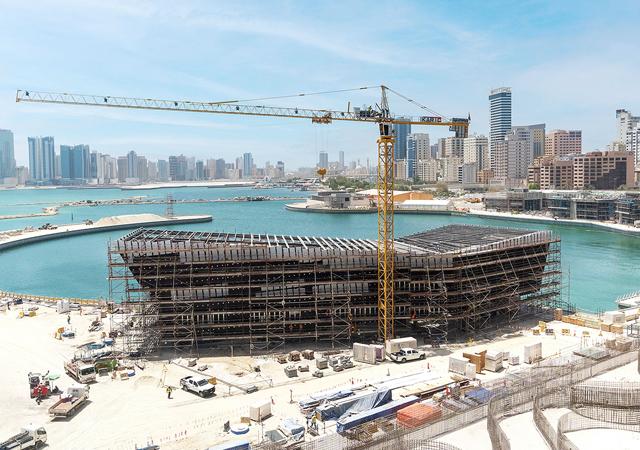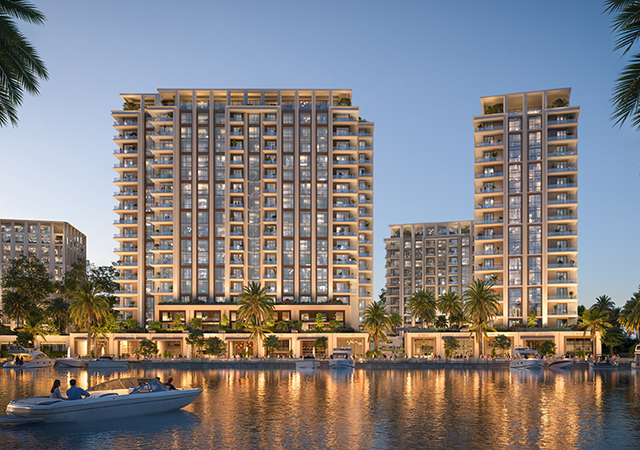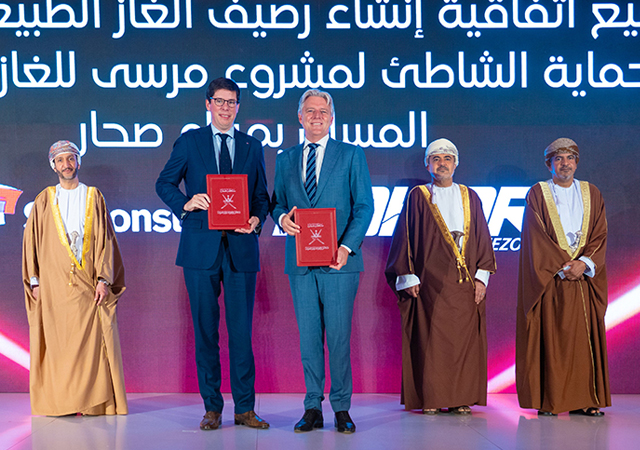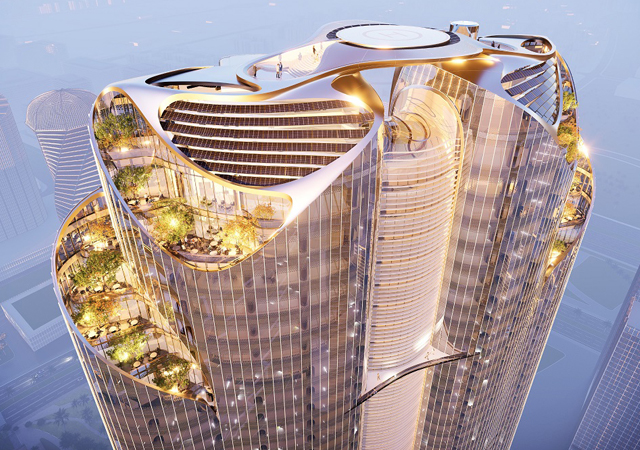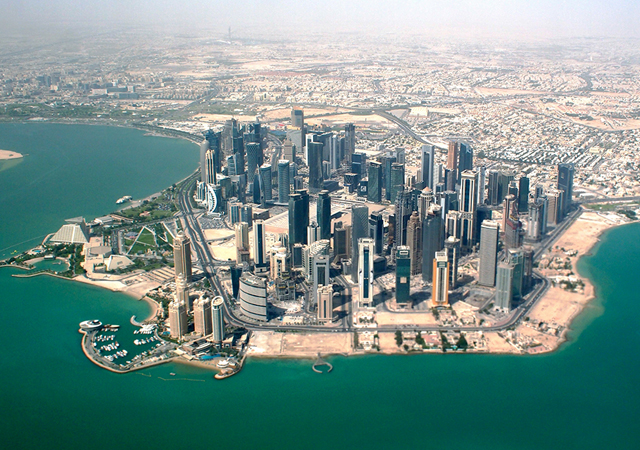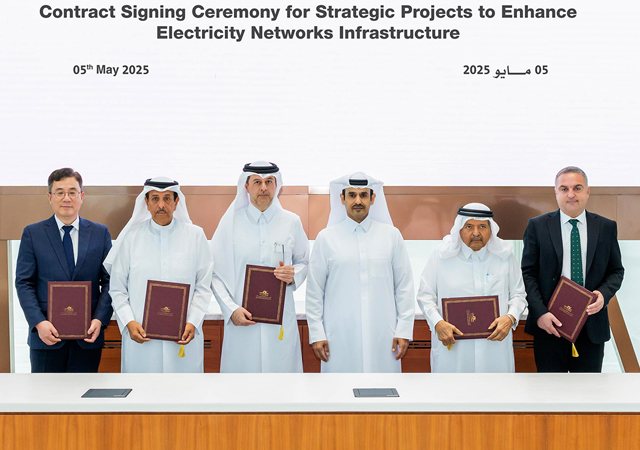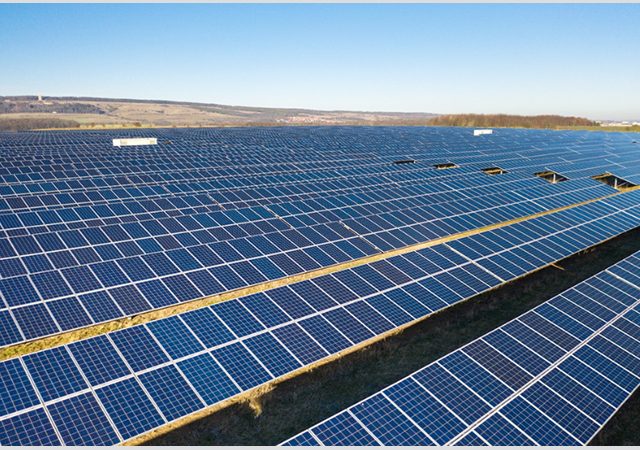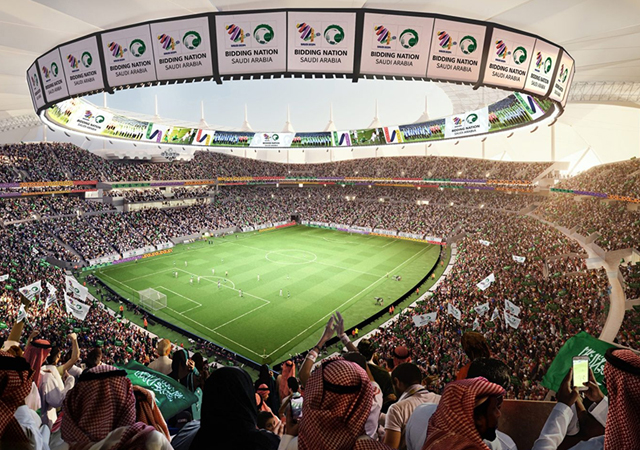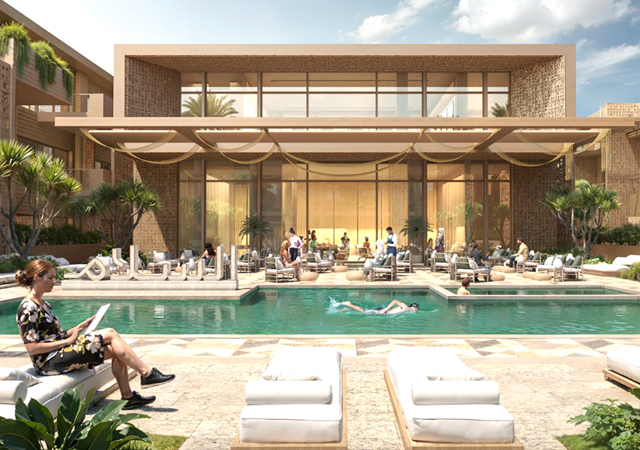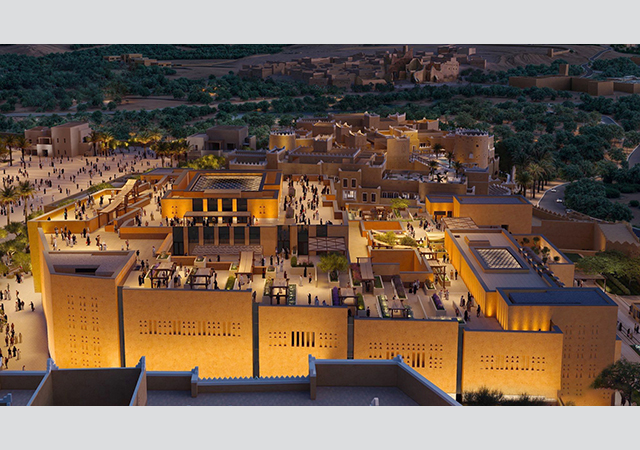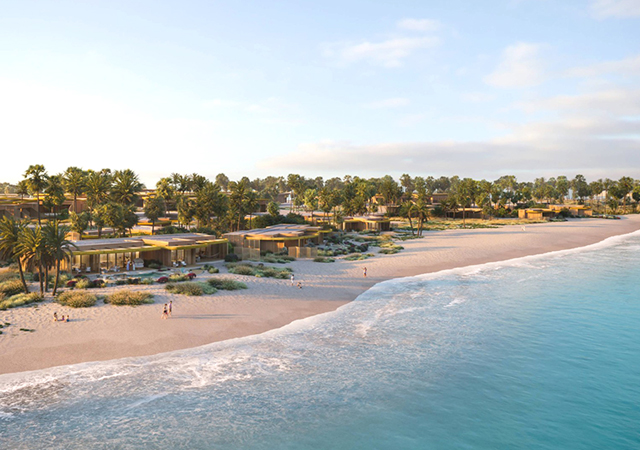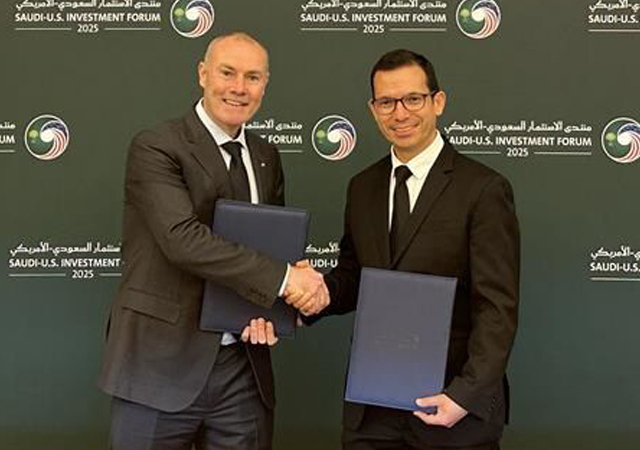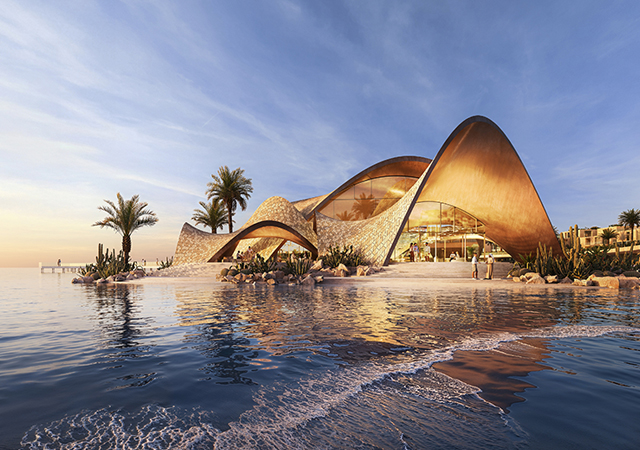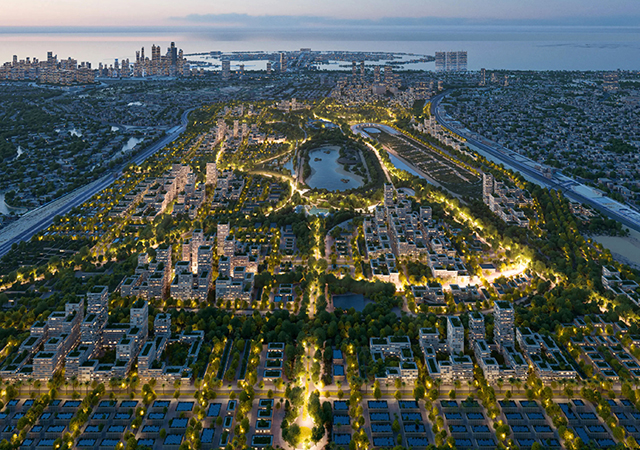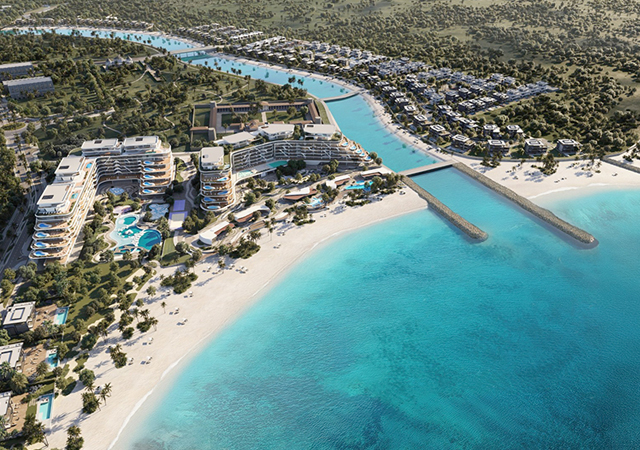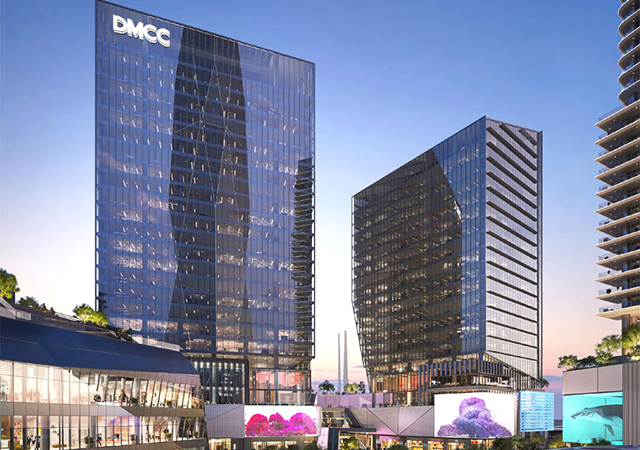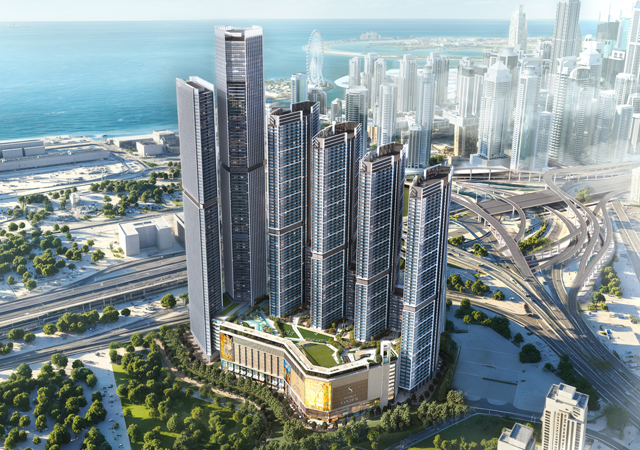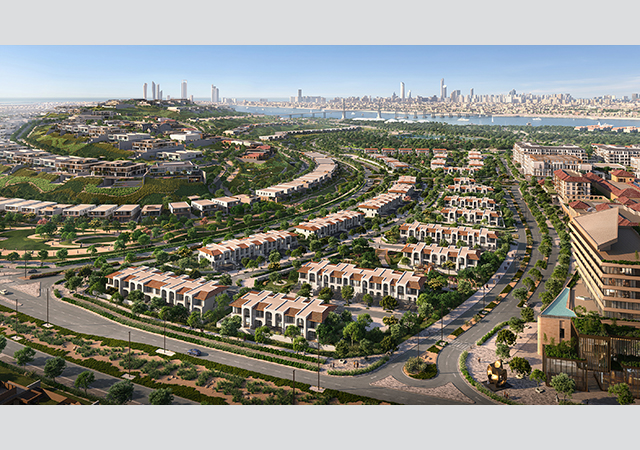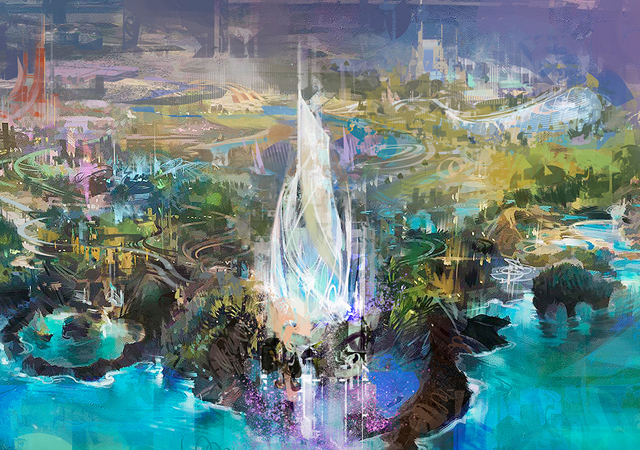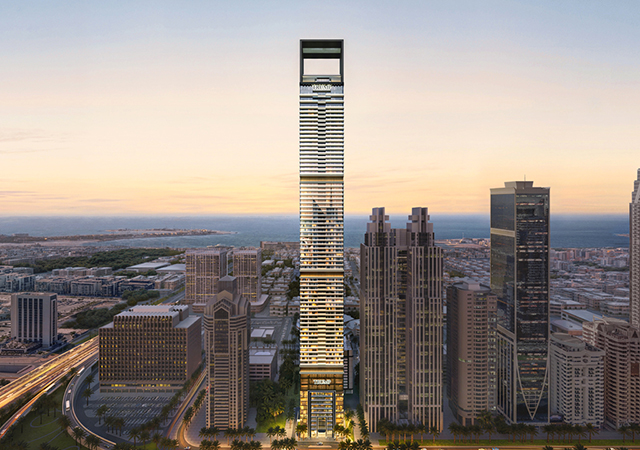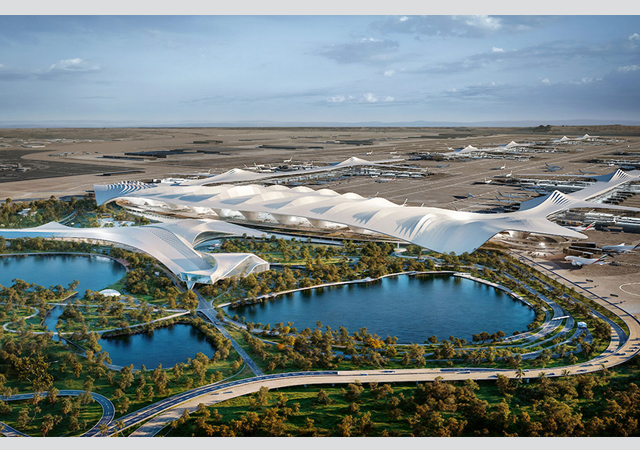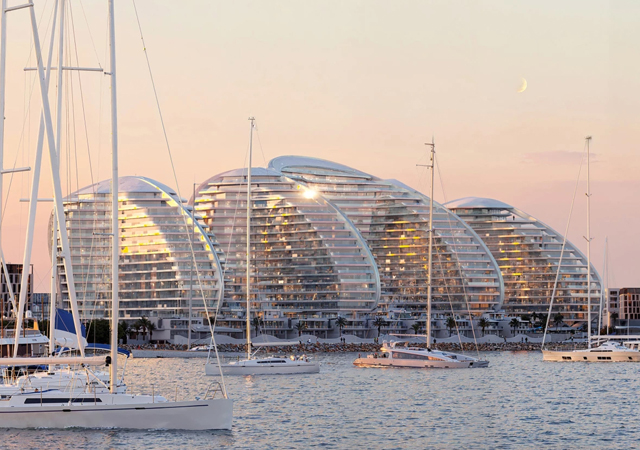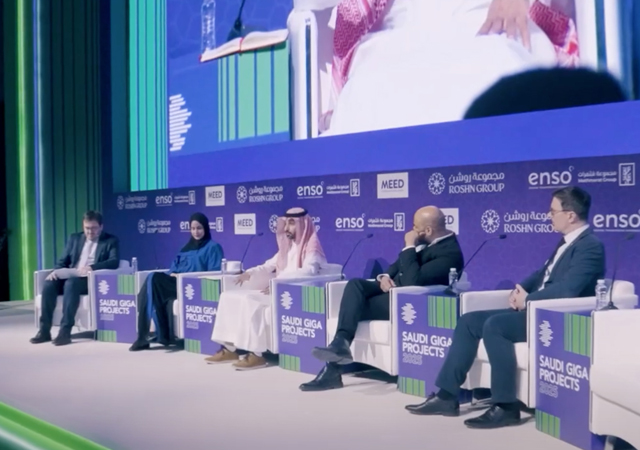
 Model of the BurJuman expansion.
Model of the BurJuman expansion.
Dubai is on the way up. Numerous high-rise structures now fill the horizon, especially on the prime Shaikh Zayed Road.
The construction sector continues to grow, in terms of value, due to a number of massive development projects currently under way or planned in the near future.
These projects include Emaar Properties' Dubai Marina, the Dubai Festival City, the second phase of Dubai Internet City project, the Media City, Union Properties-Dubai Investments Green Community project, the Al Ghurair City, Dh1 billion BurJuman expansion project and a number of hotel projects including the Grand Hyatt and the Sheraton Towers.
The emirate is set to live up to its name of 'shoppers paradise' with the Dubai Shopping Festivals having given considerable impetus to the sector - so much so that a dedicated Festival City - is now on the drawing boards.
Besides the malls already being built or expanded, further shopping centres are also in the pipeline including Al Nakheel Shopping mall to be built by Majid Al Futtaim and another mega mall by Emaar Properties near the Dubai World Trade Centre.
In the hotel and resort segment, there are an estimated 22 projects under way. To facilitate the influx of visitors, Dubai International Airport is also set to embark on a further expansion project.
According to a recent report, there are around 4,000 buildings under construction in the emirate. These comprise 9,985 apartments and 1,804 shops.
More than 570 new buildings were completed, between August and November last year, at a cost of Dh2.074 billion. Of these 314 were residential, 163 industrial, recreational and service buildings and 93 multi-storey apartment blocks.
Besides, the building maintenance sector is also growing.
Some in the construction sector however have expressed reservation about the large number of office buildings and shopping malls sprouting in Dubai, indicating that there is an oversupply in the market. Others justify their construction saying that Dubai still faces a shortage of quality retail space.
Dubai airport
A new terminal is to be built at Dubai International Airport at a cost of Dh5 billion ($1.36 billion). Work on the new terminal, designed by Aeroports de Paris, will begin in 2002 and finish in 2005, by which time the airport will be able to handle 22 million passengers. The airport's present capacity is 12.3 million passengers annually. It will have 34 new aircraft aprons in addition to the present 27.
The new terminal will be in the shape of a giant 1.2-km-long aircraft wing and will be capable of handling around 64 parked planes.
The airport will have a second parallel runaway, which can handle wide-bodied aircraft and is to be equipped with the latest technology to allow landing in zero visibility.
If growth continues into the second decade, Dubai plans to build a totally new airport near the free zone of Jebel Ali, 50 km out of town.
Commercial/residential projects
Construction on the Dh6 billion Dubai Festival City, a multi-phase project, is expected to start soon. The project is aimed at transforming the 4 km site along the creek waterfront in Al Garhoud into a one-stop destination for dining, shopping, family entertainment and conventions. The project will be built in phases and the completion will take 20 years (See Regional News).
Union Properties and Dubai Investments are jointly developing the Dh650 million The Green Community project on a part of the Dubai Investments Park. The project is located on a 66.90 hectares of land. It is due for completion next year.
The concept of the development is to have a fully integrated community providing a high-quality living environment with emphasis on greenery and landscaping.
The project comprises large single-family homes - 15 luxury villas and 95 family villas, 236 town houses and 254 garden apartments comprising 44 one-bedroom, 70 two-bedroom and 140 three-bedroom apartments, together with related facilities such as shopping centres, small retail outlets, health clubs, serviced apartments, kindergarten schools, medical and dental clinics and all other services.
All residential units will have private central recreational and sports facilities in close proximity. These will be in addition to the large-scale facilities available in the lakeside centre to the southern end of the development, where restaurants, cafes, sports facilities, shops and supermarkets will be built around a 3.7-hectare lake with plaza.
The development also includes large areas of green open spaces, which will incorporate pedestrian and bicycle paths. The open spaces will also provide amenity areas for children's play, sports and barbecues.
Construction work has started on Union Properties' 250-m high The Tower project on Shaikh Zayed Road. The state-of-the-art residential tower is located next to the Emirates Towers and is expected to be completed by next year. The project comprises 360 apartments, 4,000 sq ft of retail space, a swimming pool, health club and gymnasium. Nasa Multiplex is the main contractor.
Work is under way on the Skywalk Towers, a twin 17-storey executive apartment complex linked at the top by a 74-m bridge. Located in Deira's Baniyas Street, overlooking the creek, the building is set to be another landmark in Dubai and the bridge has been billed as "the world's longest bridge between two towers."
Set to open this year, the Dh200 million Skywalk Towers is also being built by Union Properties and will be managed by Marriott International. It will be the first luxury apartment complex managed by the hotel group in the Middle East and will target extended stay travellers.
Union Properties' net.community - a residential and commercial property built at a cost of Dh60 million - was opened in February.
Emaar's Dh700 million phase one of Dubai Marina comprising 1,250 residential units, restaurants, hotels and cafes is due for completion in 2003.
Dubai Marina, estimated to cost more than Dh14 billion, will comprise a 3 km beachfront, 100 office and apartment towers, landscaped parks, schools, shopping centres, hotels, medical facilities and a range of recreational facilities (see separate report).
Emaar's other projects, Emirates Hills and Emirates Lakes, will offer 4,000 homes.
Work has started on the second phase of Dubai Media City comprising construction of new buildings equipped with state-of-the art infrastructure and technology providing more than 300,000 sq m of space. The city set on 200 hectares near the heart of Dubai, comprises fully-equipped technical buildings.
The development also includes a third phase - a full media development featuring every facility required by the modern media industry. The construction and technical work on this third phase is scheduled to commence shortly and for completion by June 2002.
The first phase of Dubai Investment Park, spread over 400 hectares of industrial and residential plots, has been completed. With the completion of the phase, roads and other infrastructure are in place and all plots fully serviced.
Work on the Al Wasl office complex on Al Qataiyat Road in Oud Metha was completed in December last year. The prestigious project consists of two buildings, a six-storey office block and a 16-storey office tower, which will be partially occupied by the Citibank. Constructed on a 170,000-sq ft site near the headquarters of Dubai Electricity and Water Authority and the Grand Hyatt hotel development, which is under construction, the complex has a total built-up area of about 635,000 sq ft.
Work on second phase of Dubai Internet City is on and will double the existing number of buildings on the project.
Most of Dubai's major shopping malls are undergoing expansions aimed at increasing the retail area. These include the Al Ghurair City, the Wafi City, the BurJuman Centre and the Town Centre.
Work on Al Ghurair Retail City project is going on as per schedule. Launched over two years ago, the Dh1.5 billion project will transform the existing mall, while keeping it operational, into a major retailing and entertainment complex that had the potential to become Dubai's town centre.
The project comprises renovation of the existing centre, both retail areas and residential apartments and construction of additional five buildings. The second of the six-building complex, a 10-level car-park accommodating 1,300 cars has been completed. Work on the third building, a supermarket complex adjoining the new North car-park is expected to start in July and contracts for the foundation construction of the fourth building - constituting expansion of the mall and also housing apartments, offices and the West garage would be issued shortly thereafter.
The last two buildings to be taken up for construction will be the East garage, together with apartments and retail outlets, and the City Plaza.
The development will encompass an area of around 800,000 sq ft and also include a nine-screen cinema complex seating 1,500, a food-court for 600 diners, 500 long-term apartments and 200 short-term serviced apartments, 300,000 sq ft of office space and parking facilities.
Construction work is under way on the expansion of the Wafi City which comprises Wafi Mall, Pyramids and Planet Hollywood. The $20 million project, the first phase in a major five-year development plan, will create a new retail area linking the mall with the Pyramids.
The new area will provide Wafi Mall with an additional 80,000 sq ft of retail and catering space, taking Wafi's entire retail offering to 400,000 sq ft by July.
The Phase I expansion plan, designed by consultant Arif bin Toak, with construction work being carried out by Khansaheb Civil Engineering, includes covered car-parking space for 400 vehicles, as well as extensive landscaping. Phase II and III of the expansion plan will involve the construction of a residential complex and a hotel.
The Burjuman Centre is undergoing expansion at a cost of more than Dh1 billion. Work on the expansion project began last year will be completed in early 2003. The project includes a four-storey shopping centre, two high-rise apartments and an office tower.
Besides the additional 450,000 sq ft of retail space being built up around the centre's existing premises, the new BurJuman also includes a 19-storey office block with a built-up area of 300,000 sq ft; 200 residential luxury service apartments; an entertainment section; a multi-screen cineplex; a health club; a large multi-cuisine food court and speciality restaurants and covered parking space for 3,200 vehicles.
Skanska of Sweden has been appointed main contractor on the project.
Dubai-based Al Zarooni Group has launched work on a Dh400 million shopping mall and entertainment complex in Jumeirah. The new complex, Town Centre 2, will occupy a 240,000 sq ft site in the vicinity of the existing Town Centre and is targeted for completion by the end of the year. The group has signed a Dh12 million 10-year lease with Ster Century to set up a seven-screen multiplex at the centre.
Hotels & leisure facilities
Dubai continues to augment its supply of hotel rooms. Construction work on a stunning inverted 'Y' shaped project, Dusit Dubai (Tower No 1) has been completed with the project due for a soft opening this month (See Separate Report).
The 674-room Grand Hyatt is under construction near the Wafi complex in Bur Dubai. Set to open in summer 2002, it includes 363 king rooms, 118 twin rooms, 18 grand rooms, 134 regency rooms and 41 suites.
Its grand ballroom will have a capacity of 2,000 guests for banquet dinner and 3,000 for cocktails. The junior ballroom will accommodate 1,000 guests for a cocktail party. A total of 11 meeting rooms and boardrooms of various sizes will allow for meetings and events of 15 to 75 people and there will be a state-of-the-art media room equipped with visual and communications technology.
The hotel will offer a range of dining options, including a food-court comprising a New York Grill as well as Eastern Mediterranean, Chinese, Thai, Fresh Seafood, Pan Pacific and Italian restaurants, an Italian Bakery and a family-style buffet restaurant. In addition, there will be a cafŽ lounge and bar in the lobby, as well as an entertainment centre, fun pub and poolside snack bar.
Other facilities will include a fitness centre encompassing a health spa, indoor lap pool, squash courts, a tennis centre with four courts, gymnasium and beauty treatment rooms. In addition, there will also be a business centre.
The 240-room Holiday Inn Bur Dubai is scheduled to open later this year. The rooms include 45 executive suites, four royal suites and two presidential suites.
The 550-room Sheraton Park Plaza is coming up on Shaikh Zayed Road. Khatib & Alami is the consultant and Al Naboodah Contracting the main contractor on the project, which is scheduled for completion later this year.
The 156-room Hilton Dubai Creek, being built near the creekside in Dubai, is scheduled to open later this year. Architect Carlos Ott designed the glass and stainless steel edifice.
On the recreational side, a special Children's City is scheduled to open in September at the Creekside Park. The Dh77 million "interactive city," said to be the only one of its kind in the Middle East, will combine both informative and recreational facilities.
The project located on the northern side of the park comprises three-storey building with three geometric blocks on an area of 9,000 sq m. The first floor will have the Resource Centre and the second floor will have a 100-seat planetarium.
The Science Block will have all scientific exhibits on three levels connected by internal staircases. The first floor of the block will have a play area and Computer and Communication Gallery, while the Space Exploration Gallery will be located on the second level. The Culture Block's ground floor will have facilities for temporary exhibition, a multi-purpose hall, three classrooms, gift shop, prayer room, security room and nurse room. The second level is for Future Extension Gallery.
Work is under way on the refurbishment of the Wonderland theme and water park in Dubai at a cost of Dh100 million.
32Group, a diversified multinational, has drawn up an ambitious list of 21 property development and tourism-related projects, which it plans to implement in the next few years. On the anvil are a Dh2.21 billion ($600 million) Ski Trac resort; a Dh1.1 billion ($300 million) shopping mall in the middle of Dubai Creek; a Dh736 million ($200 million) pyramid-shaped building that could become the next Sheraton hotel in Dubai; and a futuristic Aqua Village that entails the construction of `sea caravan' units.
Electricity and water
The largest contract signed in the water and desalation sector awarded by the Dubai Electricity and Water Authority (Dewa) late last year went to an international consortium comprising Enel Power and Fisia Italimpianti.
The Dh2.1 billion ($567 million) project covers construction, completion, test and commissioning of the power generation and desalination operations at Jebel Ali's K Station and includes the construction of three gas turbines, three desalination units and associated works.
The Siemens power generation group has now been awarded an order to supply three gas turbines, two steam turbines and five generators for the Jebel Ali power plant complex under an order worth Dh485 million. It will also provide the electrical, instrumentation and control equipment for the project. (See Regional News)
The project will have a total production capacity of 880 MW of electricity and 40 million gallons per day (mgd) of desalinated water.
The first gas turbine is scheduled to be delivered in May 2002, the second a month later and the third in August 2002. The first steam turbine will be delivered in July 2002, the second at the end of December 2002 while the desalination units will be delivered in May 2002.
On completion of the project, the total generation capacity in Dubai will increase to 3,800 MW and the total desalination capacity will be 188 mgd.
Municipality
Dubai Municipality is expected to allocate Dh5 billion as the budget for infrastructure projects over the next five years.
The expenditure on these projects will range from Dh900 million to Dh1 billion a year until the end of 2005, said a report published in the first issue of Business in Dubai, a monthly magazine being published by the Dubai Chamber of Commerce and Industry (DCCI).
Shaikh Hamdan bin Rashid Al Maktoum, Deputy Ruler of Dubai, UAE Minister of Finance and Industry and Chairman of Dubai Municipality, has said that the infrastructure projects planned to be taken up by the municipality this year would entail an expenditure of nearly Dh2 billion (road projects - see section below).
The municipality has long-term plans to construct six new parks, nine public squares, public libraries and an additional branch in Al Quoz.
Dubai Municipality has signed a contract for a Dh120 million waste recycling and treatment plant with local private company, Saeed and Sultan Lootah International, and Interplan Environment Systems of Germany. The plant will be operational in 2003. The municipality has provided the 225,000 sq m plot and utilities, and will deliver 2,000 tonnes of domestic waste daily at an annual charge of Dh12 million. The annual production capacity is expected to be 200,000 tonnes of compost.
The contract will run for 20 years from the date of operation, after which the plant will revert to municipality ownership.
Dubai Municipality has also started work on the Nadd Shamma Park at a cost of Dh 4.5 million. The park, which will open this year, is being built on 11.6 hectares of land. It will have three entrances, up to 1,850 sq m of fencing and will have pedestrian pavement running into 1,340 sq m.
Roads
The UAE Ministry of Public Works and Housing will build a new road linking Dubai and Fujairah at a cost of Dh400 million ($108 million). The 80-km road will start from Al Sajaa-Al Khawaneej Road in Dubai and end in Fujairah. It will facilitate traffic movement to the Eastern Region by providing a quick alternative to the present road, reducing the distance between the two emirates by 25 km.
The project is part of the Dh1.5 billion plan to build new roads in Dubai and the Northern Emirates, which entails an outlay of Dh400 million to expand the Ring Road connecting Dubai and Sharjah which will also include Ajman.
In its first phase, the project comprises the extension of the Ring Road for 34 km towards the Sharjah-Al Dhaid Road, then towards the Camel Race Course in Ajman to reach the Umm Al Quwain Roundabout on the Sharjah-Ras Al Khaimah Road, Al Rakad said.
The Dh700 million second phase will include the construction of a new highway which will be a continuation of the Ring Road linking Al Khawaneej and Al Saja. The highway will cross the Al Dhaid-Sharjah Road to continue towards Ras Al Khaimah, where it will extend as a ring road around the city. This road will be 87 km long.
The Dubai Ring Road connecting Jebel Ali to the Sharjah Industrial Area has been officially opened. The Dh819 million ($221 million) road network was designed to ease traffic congestion, aid development and reduce travel time.
Work is under way on the Dh68.45 million third phase of the Ring Road. It includes construction of a 17.3 km highway as part of the Ring Road from Al Habab Road to the Shahinat Road in Abu Dhabi. In addition, another 4.5 km road will be built in this phase linking the Ring Road with the Shaikh Zayed Road. The project has been awarded to a local contracting company with a contract period of 420 days.
The Dubai Municipality is redesigning the first seven interchanges on Shaikh Zayed Road at a cost of Dh200 million to alleviate the growing traffic congestion. The project follows a eight-month study by an international firm. The first phase of the project began with the construction of the new Al Safa Interchange, which is expected to cost Dh67.47 million.
The municipality is upgrading and expanding Al Sufouh Road at a cost of Dh27.3 million. The project involves the expansion and upgrading of Al Sufouh Road including widening of 6 km of the existing road from two to three lane carriageway. It also includes the construction of new internal roads in block 372, widening of 1.1 km of Umm Suqeim Road to dual three-lane carriageway.
The municipality has also built a 1.2 km bicycle path as part of Al Mamzar Corniche project. The Dh59 million project was executed in two phases. The first comprised the building of a 3 km, two-lane dual carriageway named Al Mamzar road and parking areas. The second phase costing Dh22 million included the addition of 1.2 km to the dual carriageway, the building of cycle track, five parking areas along Al Mamzar road, toilet blocks, and shower facilities on the beach and rock reinforcements to prevent erosion.
Work on the new Al Mamzar interchange has started. The Dh42 million project is located midway between Al Ta'awun bridge in Sharjah and Al Mulla Plaza tunnel in Dubai along Al Ittihad road. De Leuw Cather Overseas Limited is the construction consultant and project supervisor.
Construction of a footbridge between the Global Village and the Creekside Park at a total cost of Dh4.44 million was completed in February.
Other projects
The first phase of the project, which covers the eastern part of Jebel Ali, will cost Dh47.38 million. It will comprise installation of a 1,400-mm main line for a distance of 18 km to supply irrigation water to the golf courses, the Emirates Hills project, and other nearby areas. The project also comprises the construction of a green belt alongside the Emirates Road.
The second phase covers the western part of Jebel Ali and will cost Dh44.96 million. It will comprise installation of a 1,400 mm irrigation line for a total distance of 10 km, a 1,200-mm line for 3 km and another 800-mm line for 4 km to supply irrigation water to the Emirates Hills project and other nearby areas. It also includes landscaping works along the Emirates Road. Both the phases are expected to be completed within the next 20 months.
The project was designed to provide `requisite' facilities for the Airbus A3XX freighter, according to a top DCV official.
The campus is also designing a large storage facility in the north-east side to increase the storage area for the equipment and materials used by the university.


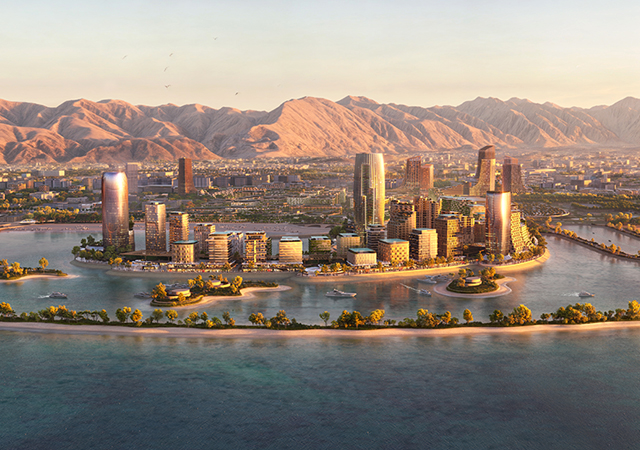
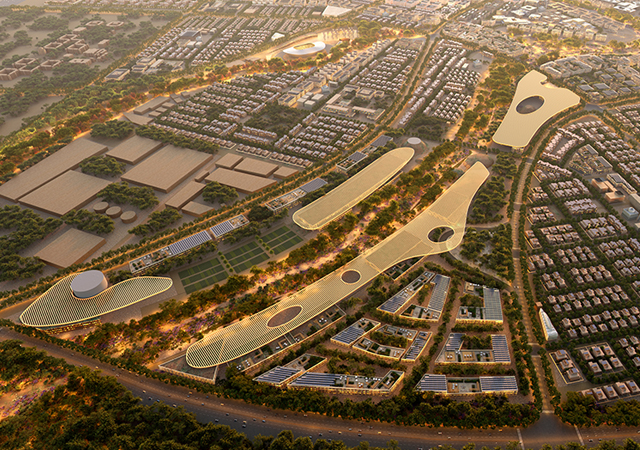
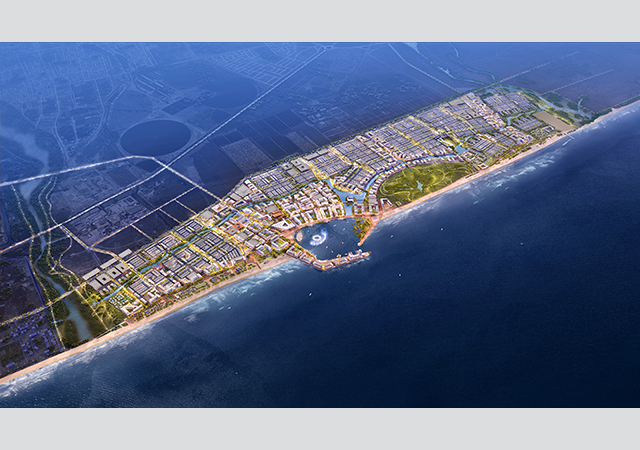
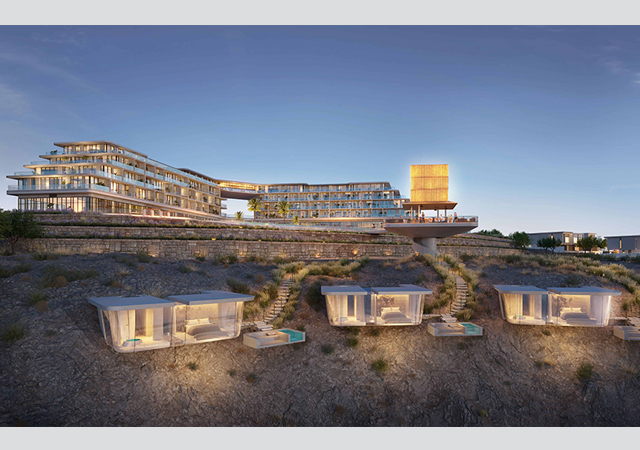
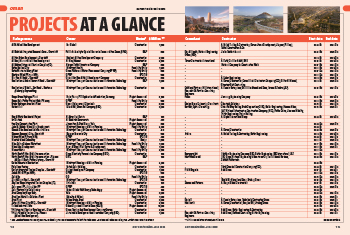
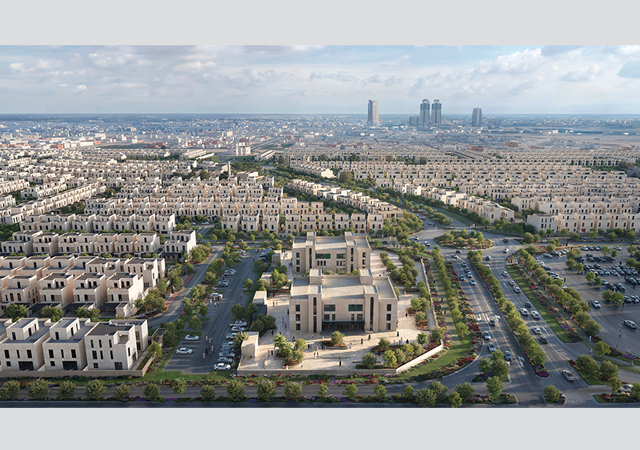
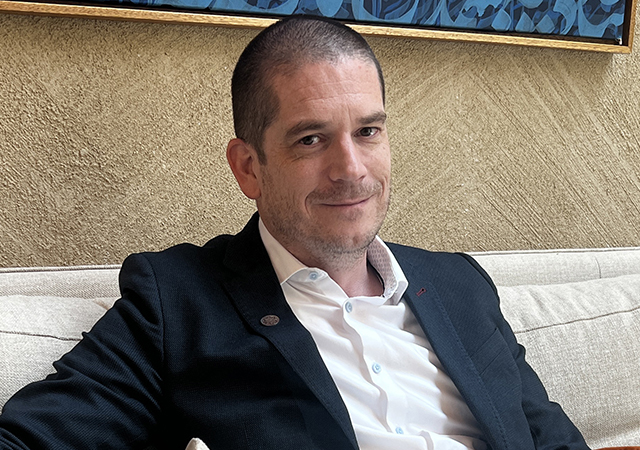

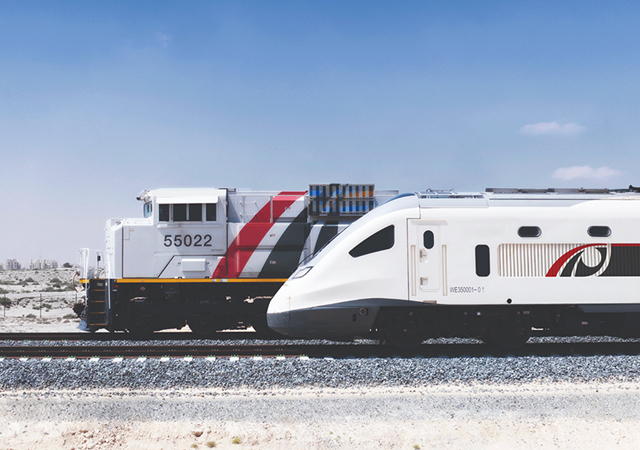
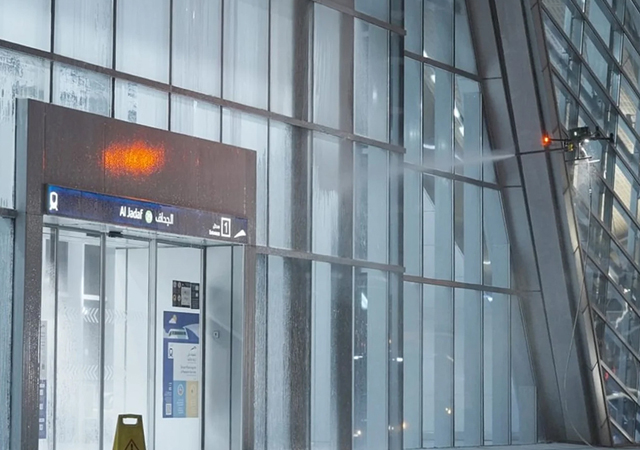
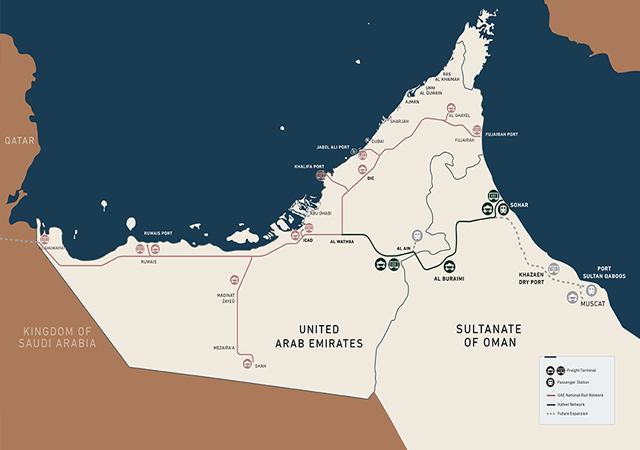
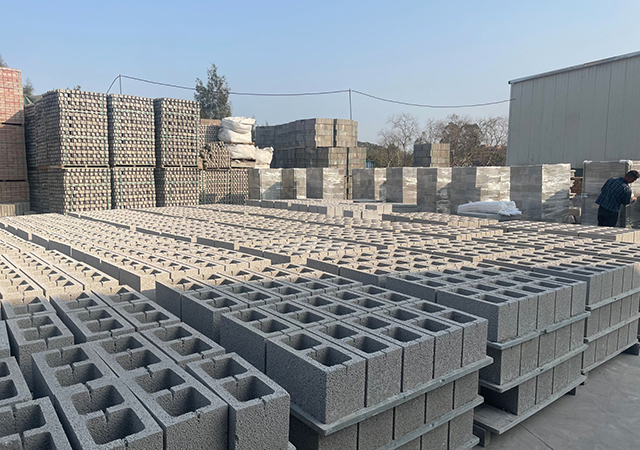
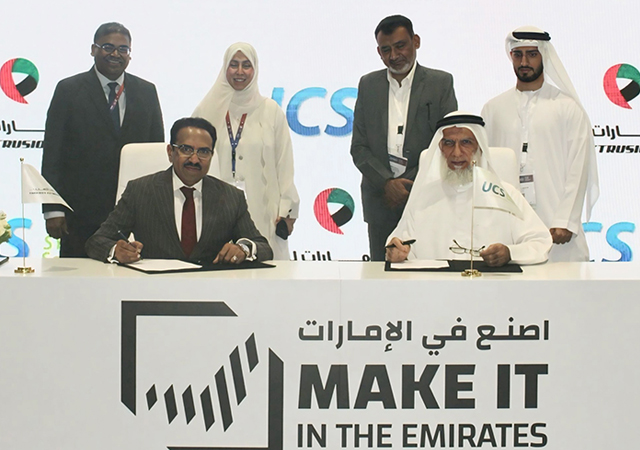
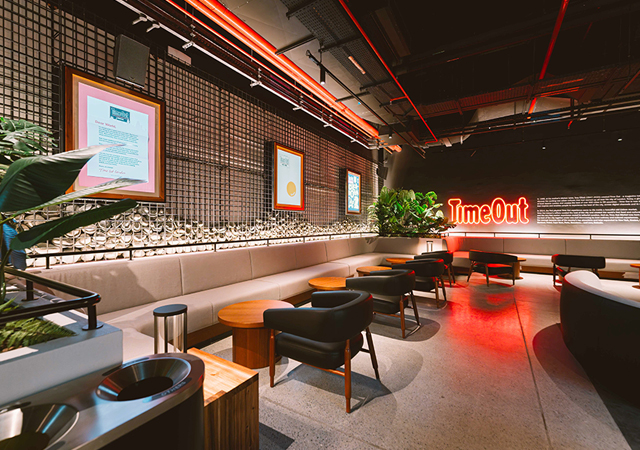
.jpg)
.jpg)
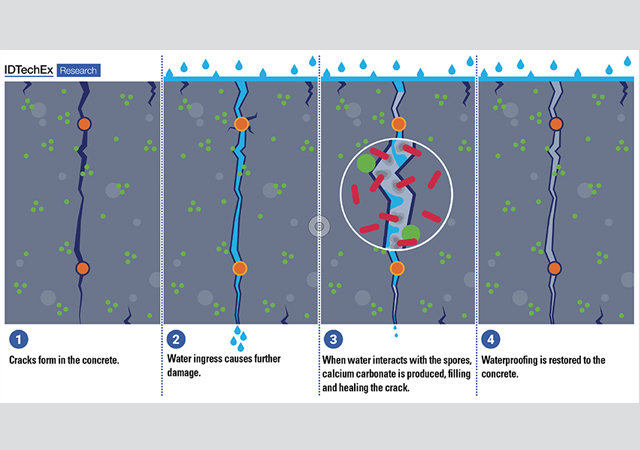
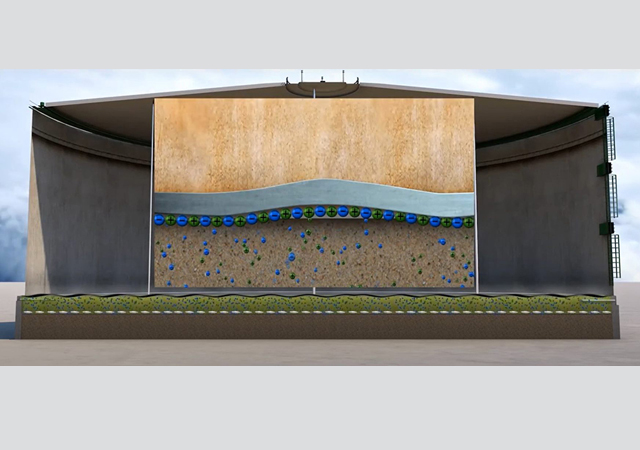
.jpg)
.jpg)
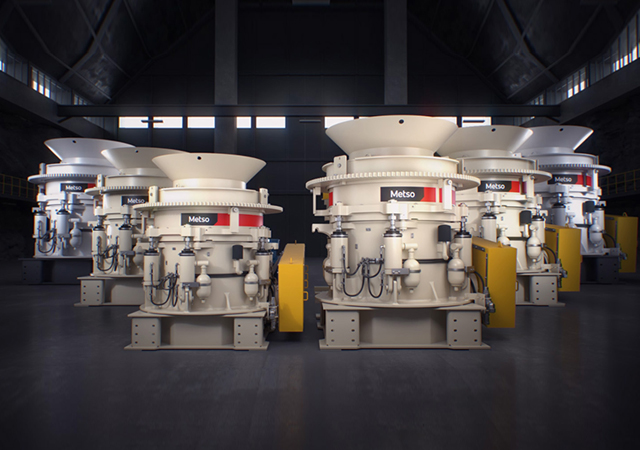
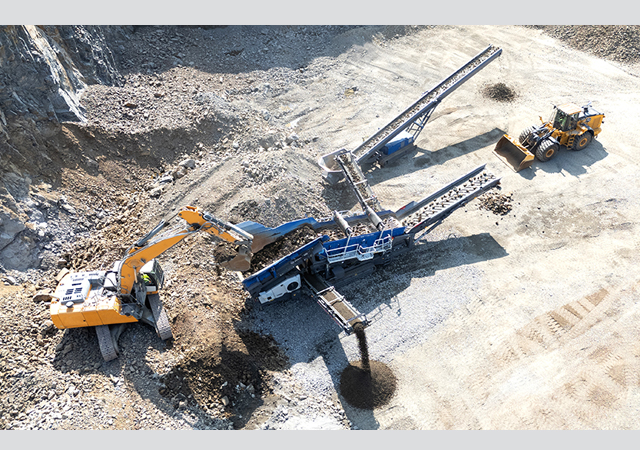
.jpg)
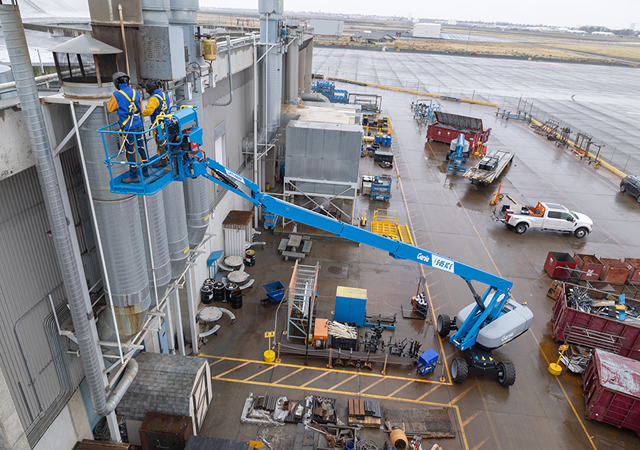
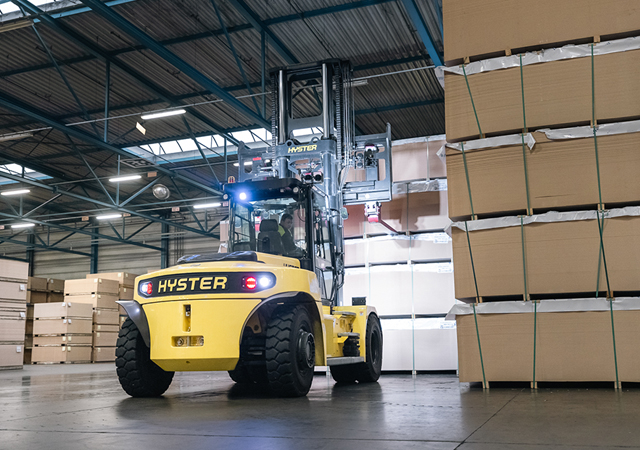
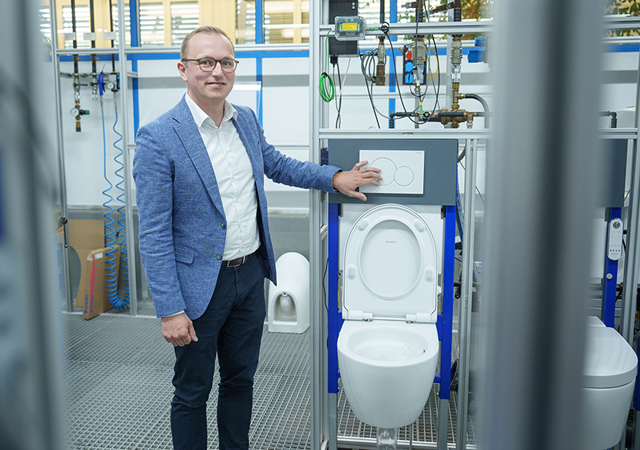
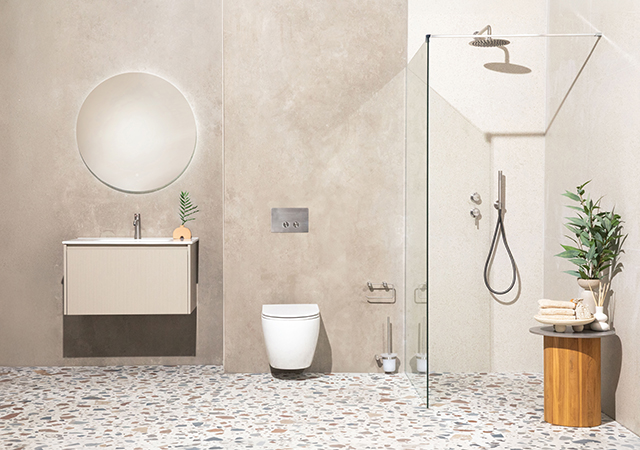
 Doka.jpg)
